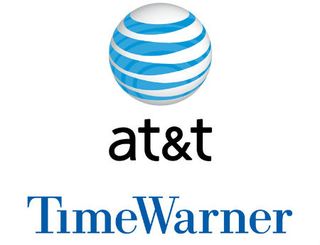AT&T, Time Warner Reach Deal

After two days of playing one of the most public games of cat-and-mouse in recent memory, AT&T finally snagged its prey – Time Warner Inc. – in a cash, stock and assumed debt deal worth $108.7 billion that will combine the largest multichannel video programming providers in the country with the second largest content creator.
The deal is the second mega-deal for AT&T in two years – it paid $48.5 billion for satellite TV service provider DirecTV in July 2015 – and solidifies the telephone company’s position as a vertically integrated powerhouse. Once the deal is completed – and it is expected to take at least a year to wind through the various government agencies scrutinizing it – AT&T, which has 25 million pay TV customers, would control a major motion picture and television producer – Warner Bros. Entertainment – and a stable of networks including premium channel leader Home Box Office, TBS, TNT, Cartoon Network, CNN and others.
“This is a perfect match of two companies with complementary strengths who can bring a fresh approach to how the media and communications industry works for customers, content creators, distributors and advertisers,” said AT&T chairman and CEO Randall Stephenson in a statement. “Premium content always wins. It has been true on the big screen, the TV screen and now it’s proving true on the mobile screen. We’ll have the world’s best premium content with the networks to deliver it to every screen. A big customer pain point is paying for content once but not being able to access it on any device, anywhere. Our goal is to solve that. We intend to give customers unmatched choice, quality, value and experiences that will define the future of media and communications.”
Speculation that AT&T was in early discussions with Time Warner about a possible merger first surfaced last Thursday.Talks heated up on Friday and according to sources pressure that another bidder would swoop in with a sweeter deal forced AT&T to act quickly.
In the end, AT&T will pay about $85.4 billion in stock and cash -- $53.75 in cash and another $53.75 AT&T stock, valuing Time Warner at $107.50 per share, a 36% premium over its $79.24 share price on Oct. 19. Including Time Warner’s debt, the total value of the deal is $108.7 billion.
AT&T is in the middle of a major transformation, launching an over-the-top service – DirecTV Now – later this quarter that is expected to eventually become the dominant transport vehicle for its entertainment services.
Stephenson has said publicly for more than a year that he believes the future of TV is mobility and with the Time Warner deal backs up that strategy with cold, hard cash.
Multichannel Newsletter
The smarter way to stay on top of the multichannel video marketplace. Sign up below.
“With great content, you can build truly differentiated video services, whether it’s traditional TV, OTT or mobile. Our TV, mobile and broadband distribution and direct customer relationships provide unique insights from which we can offer addressable advertising and better tailor content,” Stephenson said in a statement. “It’s an integrated approach and we believe it’s the model that wins over time.”
Time Warner on the other hand, gets a solid distribution partner with strong wireline, wireless and online assets. The content company, like its peers, has struggled with shifting viewership trends as more and more young consumers watch content on their phones and online.
“Combining with AT&T dramatically accelerates our ability to deliver our great brands and premium content to consumers on a multiplatform basis and to capitalize on the tremendous opportunities created by the growing demand for video content,” Time Warner chairman and CEO Jeff Bewkes said in a statement. “That’s been one of our most important strategic priorities and we’re already making great progress — both in partnership with our distributors, and on our own by connecting directly with consumers. Joining forces with AT&T will allow us to innovate even more quickly and create more value for consumers along with all our distribution and marketing partners, and allow us to build on a track record of creative and financial excellence that is second to none in our industry. In fact, when we announce our 3Q earnings, we will report revenue and operating income growth at each of our divisions, as well as double-digit earnings growth.”
There will be obvious regulatory hurdles – both the Federal Communications Commission and the Department of Justice will have to sign off on the deal. And this being an election year, the uncertainty is even greater as a new administration takes hold in January.
Republican nominee Donald Trump has already said he would block the merger, calling it “too much concentration of power in the hands of too few.”
Democratic nominee Hillary Clinton hasn’t commented directly on the merger at press time, but she has in the past said she would increase anti-trust enforcement at DOJ and the Federal Trade Commission.
Aside from regulators, AT&T and Time Warner will have to convince Wall Street that it has cracked the vertical integration code, owning content and distribution in the same company. With the exception of Comcast-NBC Universal, most companies that have tried to marry content and distribution assets were seeking divorces shortly after. And some critics have said that Comcast’s main reason for success with NBCU was that it was a mismanaged, undervalued asset that it could get at an extremely attractive price. None of that could be said of Time Warner, which has managed to steer the choppy content waters expertly.
AT&T said it expects $1 billion in annual run rate costs synergies within three years of the deal closing, primarily driven by corporate and procurement expenditures. Over time, the two companies believe they can create incremental revenue opportunities that neither could achieve on a standalone basis.
AT&T and Time Warner executives are scheduled to hold a conference call with analysts to discuss the merger on Monday, Oct. 24 at 8:30 a.m.
